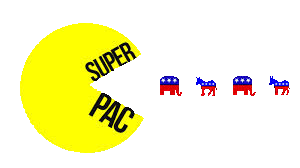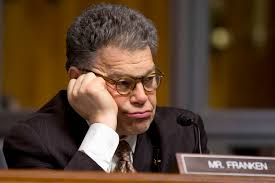Chris Cillizza illustrates the benefits of Citizens United and SpeechNow.Org in a Washington Post article examining the wide-open state of the Republican presidential field:
“Traditionally — that is, in the time before super PACs — the way that the field was winnowed was via fundraising. A candidate underperformed expectations in Iowa or New Hampshire (or both), the fundraising spigot dried up, and he or she was forced to acknowledge reality and drop from the race.
Now, though, your aligned super PAC can function as a sort of campaign life support — keeping candidates alive for as long as wealthy donors want them to be around.”
The pre-Super PAC era sure sounds bleak. Appeal to voters in Iowa or New Hampshire, or else! But now it appears voters in the other 48 states will also get a chance to be heard.
You would think this would be cause for celebration, or at least serious reflection. If increasing the amount that individuals can spend on politics creates a longer and more competitive primary process, has political influence been centralized (because wealthy donors can now account for a higher percentage of total political spending), or decentralized (because voters in more states can meaningfully affect who is nominated)?
CCP’s well–founded skepticism of the ability of donors to “buy” elections or policy outcomes would lead us to suspect the latter, but it’s an open question that deserves more attention. Unfortunately, the article doesn’t address it, instead focusing on the narrow perspective of party elites. The headline reads: “GOP’s fight for 2016 nomination likely to drag on longer than party desires.”
It’s easy to see why party leaders want a fast primary. A lengthy primary creates more opportunities for candidates’ weaknesses to be exposed, and depletes the resources of Republican donors and candidates before they begin competing with Democrats.
It’s harder to see why their perspective should also be adopted. After all, if the goal is simply to have a quick, clean process that leaves the nominee unblemished, why not just gather a few party elites in a private boardroom, light up some cigars, and let them pick? Who needs primaries at all?
Oh, that’s right – the voters. (Funny how often they are forgotten in political journalism.) While voters undoubtedly want their party’s nominee to enter the general election in a position of strength, they care even more about making sure he or she is someone they actually want to vote for. Assuming we want candidates to be representative of and responsive to voters, Super PACs are a boon to democracy. Independent support allows more candidates to run viable campaigns, and to spend less time courting donors and more time appealing to voters.
In other words, Super PACs create more choices, and better choices, for voters. Of course party leaders don’t like that. They don’t want you to choose. They want to choose.
My question is: so what?
If The Post wants to discuss the declining power of party elites, it should also ask where that power goes. What’s best for party leaders and what’s best for the country are not the same thing.














